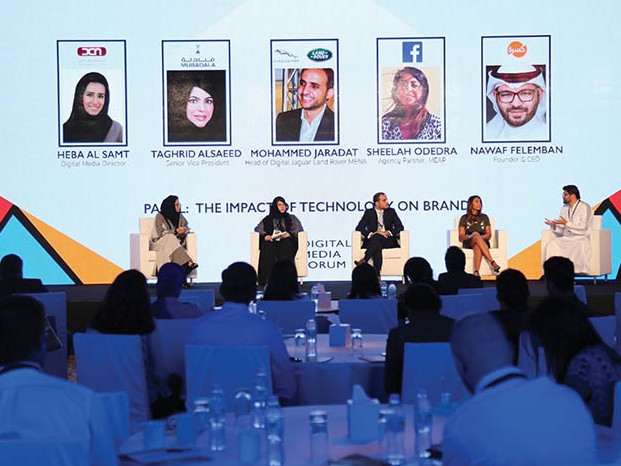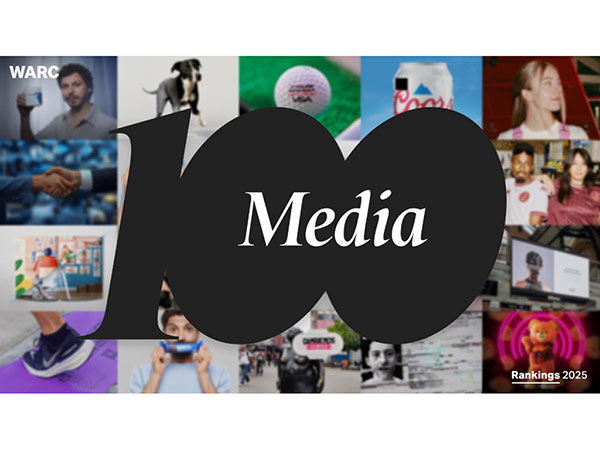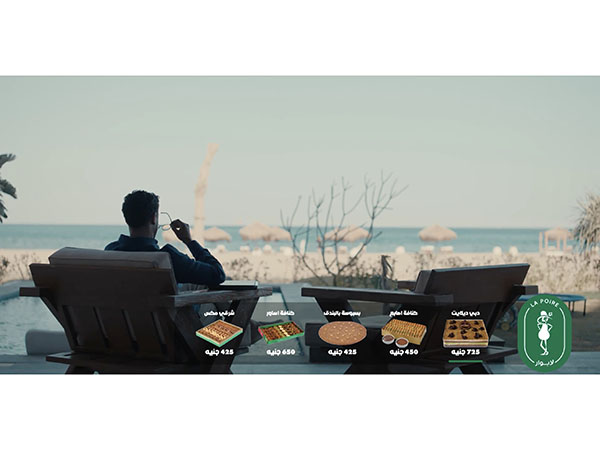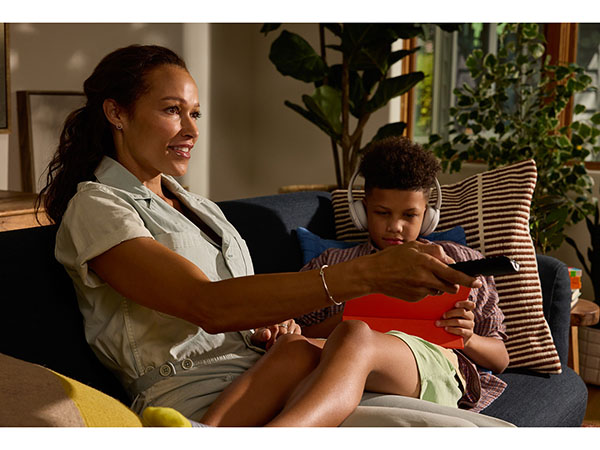News - Events
Digital Media Forum 2016: “The Future Restarts”
by Fayza Bjayou
April 13, 2016

The fifth installment of the Digital Media Forum, Dubai’s largest gathering of industry leaders from MENA and around the world, attended the anticipated event, thematically entitled, “The Future Restarts.” The Digital Media Forum provided a networking platform and hosted a line-up of the world’s foremost digital and social media advocates to discuss the future of technology and business solutions, in addition to sharing insight into the most current marketing trends in the digital world.
Industry leaders, who took to the stage at the Digital Media Forum, discussed the impacting nature of the digital revolution, on the structure and organisation of businesses. Emphasis was placed on the need for agencies to remain current and up-to-date with the advancements. Carlos Domingo, Senior Executive Officer, New Businesses and Innovation at Du, highlights how the digital revolution is altering the way in which industries serve their customers. The changing nature of the digital world means that companies are in need, more than ever, of bringing the right people on board with the necessary skills to assist and handle the transformational shift. “It’s not about the digital strategy but rather strategy in a digital world,” Domingo says.
Adam Koystal, SVP and Head of Global Listing Services at EMEA Nasdaq, Sweden, affirms that one of the prime examples of a brand that has built and strengthened its position in the market in relation to their customers, is Facebook. He believes it to be a “... fantastic example of how social media has evolved, by leveraging public markets and diversifying its acquisitions.” He emphasises the point that the success of a business rests upon its growth through new media. “The way to reach an audience evolves over time and the challenge comes with digitalisation and its impact on traditional businesses as well as start-ups,” affirms Koystal.
Will Rust, Executive Creative Director of OglivyOne MENA, talks creativity in the new age. “We should allow ourselves to follow through the creative freedom.”
In a time where digital agencies are in abundance, Rust believes that the only way to distinguish one from the other is to create an impactful, highly creative experience for consumers. Rust supports the notion that ideas should be nurtured without the worry of conforming to the criteria of a client brief – a stringent client brief can often sabotage the creative process. According to Rust, “one has to think like a child in order to succeed.” Suspending calculated thoughts and concerns (related to external pressures), is the only way to fully activate creativity worthy of notability.
In a panel discussion, Sheelah Odedrah, Agency Partner, Facebook, MEAP, states that, “technology is the fuel pushing us further.” Odedrah highlights this point with the mention of Facebook’s most recent, Oculus Rift acquisition, claiming that technology is providing constant motivation to develop existing brand capabilities.
Mohammed Jaradat, Head of Digital, Jaguar Land Rover MENA, sheds light on the motor industry and how digital has significantly impacted the market at present. “Consumers are spending more time online than the show room. The digital world is steering customers into making decisions before reaching the showroom.” Jaradat believes that technology is allowing for brands to understand consumer behaviour far better.
Taghrid Al Saeed, Senior Vice President at Mubadala Group Communications, believes that thanks to the rapid advancements in the digital world, brands are able to effectively measure how people feel after experiencing branded content. Nawaf Felemban, Founder and CEO of Kasra, mentions that the power of technology has enabled us to access data like never before, but with that, comes the increased risk of bad data and bad interpretation to that data, which may adversely affect the messaging sent out to customers. The panel agreed overall, that understanding the advancements of digital media by learning more about the market through trial and error, targeting the right consumer, and making a brand’s presence and interaction online relevant to their target consumers, were fundamental aspects of assuring brand success.
How has the digital revolution impacted Arab youth? Tech companies have contributed significantly to the changing communication in the market, according to Youssef Tuqan, Vice President of Marketing & Analytics at Careem. “There has never been a better time to be a tech entrepreneur… with opportunities having doubled in the past five years.” According to Tuqan, young Arabs are extremely connected - Saudi Arabia taking the lead statistically, with the highest global penetration. This reflects a surge in regional demand for social media content, which has given rise to a new generation of content creation. Tuqan highlights that the success of a brand is often determined by how well a digital platform adapts to the demands of the regional consumer.
Alexander Bregman, Strategic Partner at Google EMEA, discussed content consumption in a mobile-focused world. According to Bregman, there has been a significant shift to mobile, and the way we consume content has changed. But the high level of consumption is not conducive to the slower rate at which mobile data is loaded. “The mobile experience is slow and we are oftentimes at the receiving end of non-responsive content,” says Bregman, who further highlights that “…40% of people abandon a website that takes more than three seconds to load.” Bregman reports that smartphone penetration has reached 75% in Saudi Arabia and 80% in the UAE. Mobile has fast become the number one platform in the region, superseding desktop. But speed and experience has yet to be efficient enough for the rising demand. How to make mobile content better? The AMP (Accelerate Mobile Pages) project, through its collaborative approach and instant speed, aims to enhance efficiency allowing for content to be brought physically closer to users.
Benjamin Ampen, Head of Revenue, Middle East & North Africa at Twitter, believes social media platforms like Twitter is a live connection to culture. Social Media has helped to redefine the concept of influence. Ampen shares examples of celebrities in the region, who have become even more powerful through social media activation. Social media platforms like Twitter, enables a brand to understand who is using Twitter, identifying the right people at the right time and pushing the product in their direction. “82% of the World’s leaders are on Twitter,” according to Ampen, “which clearly indicates that this is where people want to access news and what matters.” Twitter engagement drives action online and offline. There is a powerful demand for live-streaming engagement, which allows for a greater quality of experience. According to Ampen, Twitter delivers two times the lift to that of the open web, which highlights the ever-increasing power and necessity of engagement platforms.
Topics
Recommended
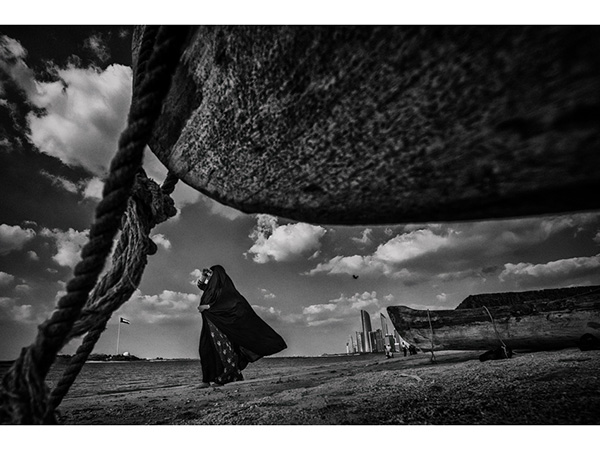
Donell Gumiran announced as UAE's winner for the Sony World Photography Awards 2025
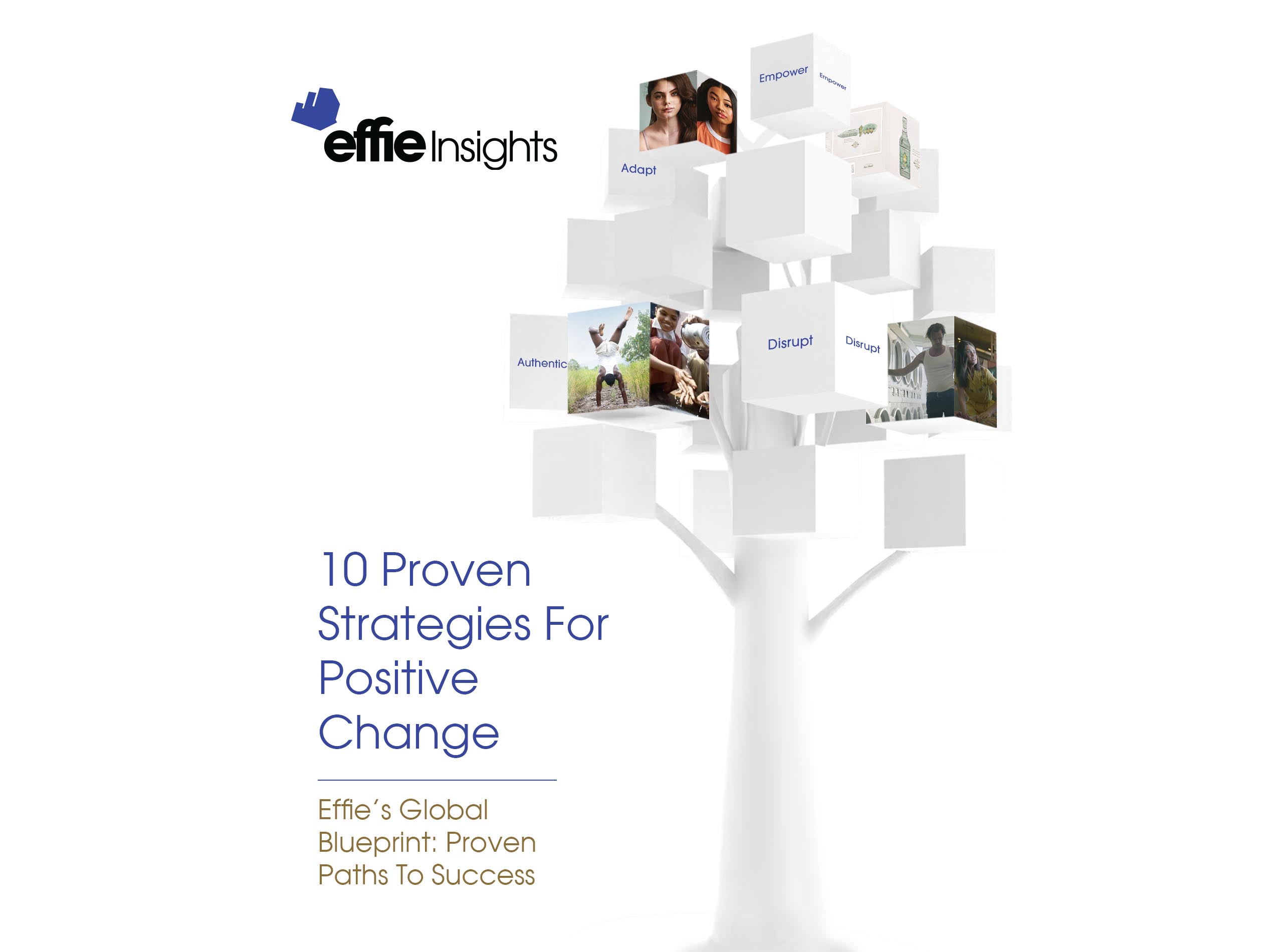
Effie celebrates ten years of championing campaigns that make a difference
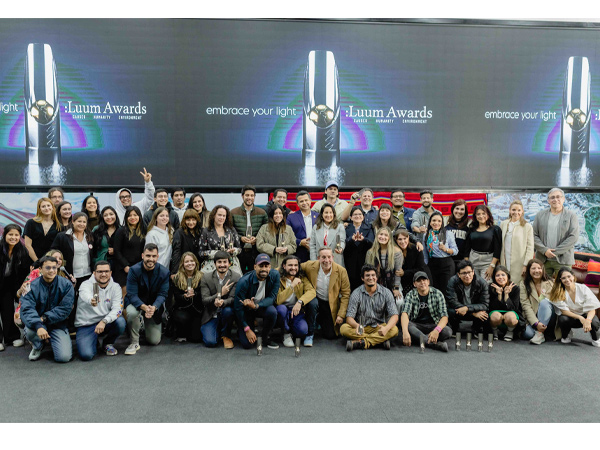
Edelman and Ogilvy star at the Luum Awards, the global festival for purpose-driven communications



